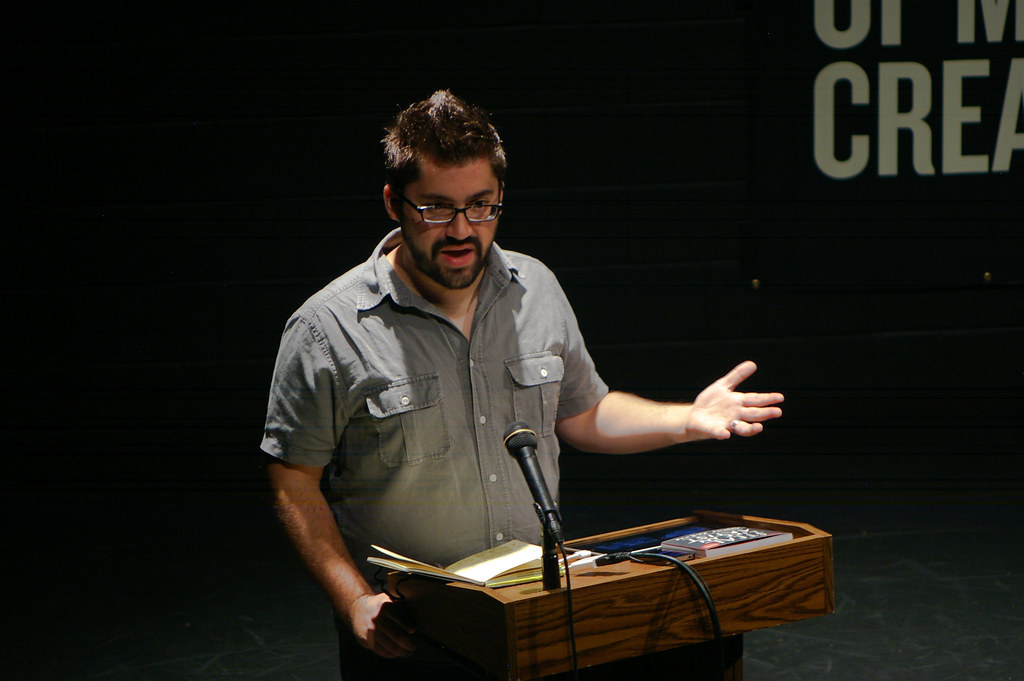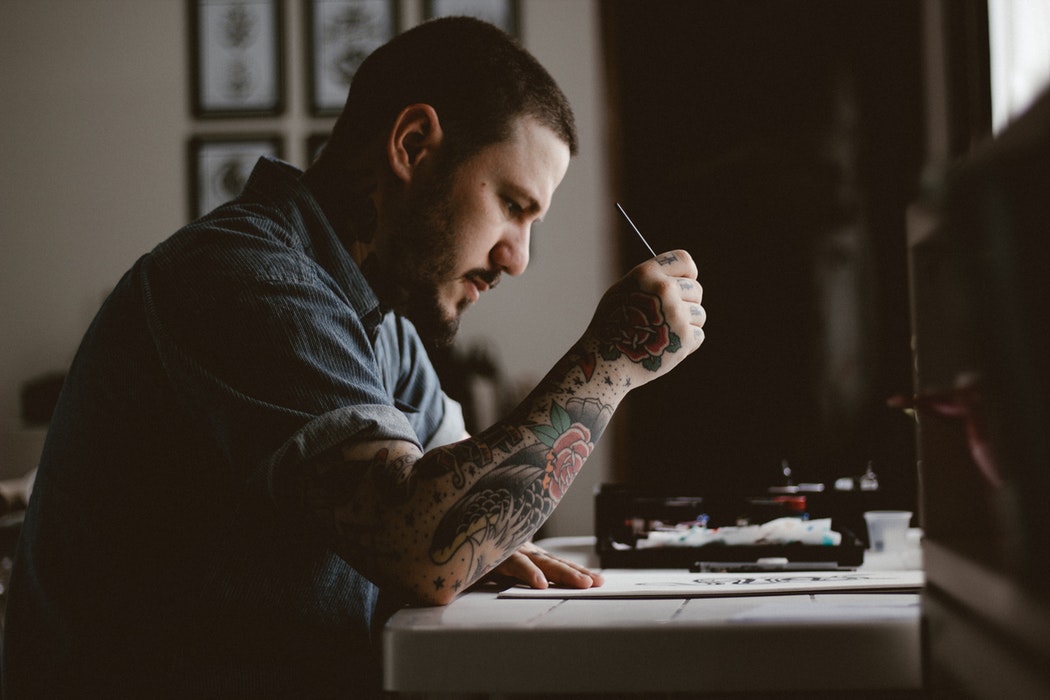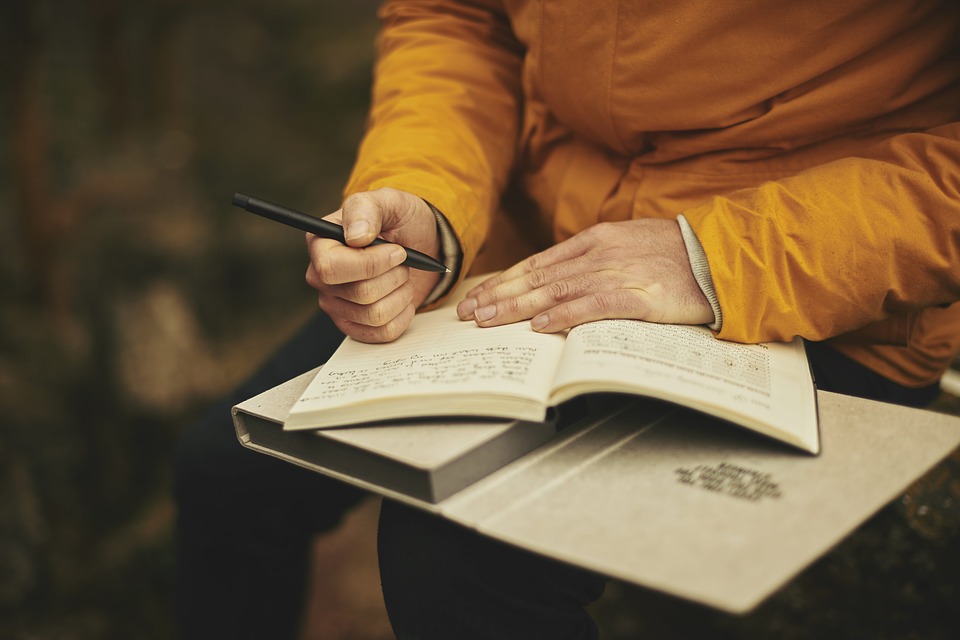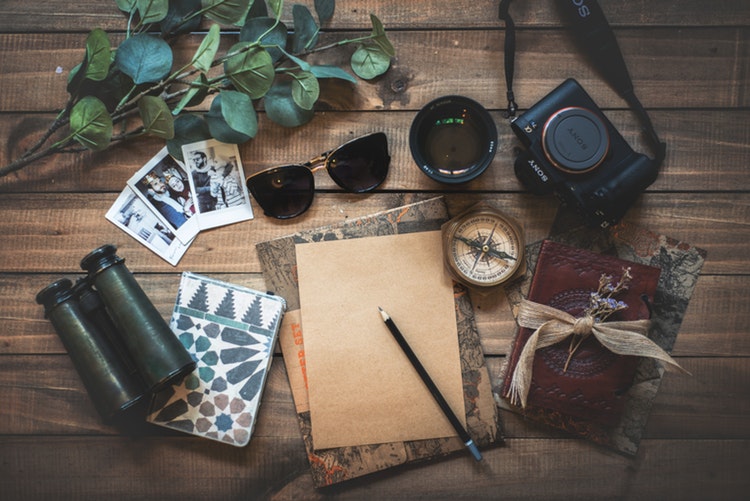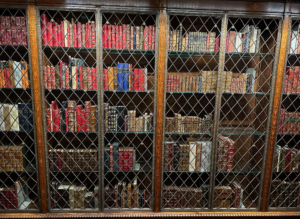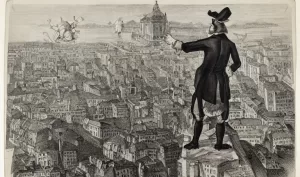Austin Kleon’s Top 13 Writing Tips
About one year ago, I started to notice Austin Kleon’s name everywhere I looked. He popped up in books, articles, and websites. He was everywhere, and I had no idea who he was.
Over the years, I’ve learned to pay attention to people like that. They’ve put in the years of hard work required to become an overnight success.
While researching this mysterious Austin Kleon fellow, I quickly discovered that he had written a small but powerful book called Steal Like An Artist that became a New York Times bestseller.
I decided to read the book, and it blew my mind. I highly recommend it to any of you writers looking to boost your creativity quotient.
Here are the top 13 writing tips from Steal Like An Artist:
1. Steal the things you love.
“What a good artist understands is that nothing comes from nowhere. All creative work builds on what came before. Nothing is completely original.” -Austin Kleon
Each of us is a patchwork quilt of our friends, family, mentors, and influences. No artist’s work is truly original, and we shouldn’t be ashamed that our work is influenced by those who have gone before us.
Great authors riff off other people’s ideas — tweak them, improve them, and make them their own.
Note: I said “riff off” — not “rip off.” There is a crucial distinction between (1) remixing someone else’s work into your own unique creation and (2) copying someone else without giving them credit.
The first is art; the second is plagiarism.
“Immature poets imitate; mature poets steal; bad poets deface what they take, and good poets make it into something better, or at least something different. The good poet welds his theft into a whole of feeling which is unique, utterly different from that which it was torn.” -T. S. Eliot
2. Become a collector of good ideas.
“Your job is to collect good ideas. The more good ideas you collect, the more you can choose from to be influenced by.” -Austin Kleon
Great writers see inspiration everywhere and take mental notes of future subjects for writing.
And do you know what’s even better than a mental note? A physical one. Successful writers often keep a “commonplace book” to record their favorite quotes, ideas, and stories.
Whether we keep ideas in a notebook, 3x5 notecard box, or a digital tool like Evernote, we must become idea collectors and curators.
3. Build a library of unread books.
“Collect books, even if you don’t plan on reading them right away. Nothing is more important than an unread library.” -Austin Kleon
I used to feel guilty about buying new books when I already have hundreds of unread books on my shelf. Then I realized that unread books remind me of all of the things I don’t know yet.
Unread books represent knowledge waiting to be acquired.
Author Nassim Nicholas Taleb refers to unread books as an “anti-library.” As writers, we should work to cultivate our anti-library of books from which to gain energy, inspiration, and insight.
4. You don’t need to wait for anything. Just start.
“If I’d waited to know who I was or what I was about before I started ‘being creative,’ well, I’d still be sitting around trying to figure myself out instead of making things. In my experience, it’s in the act of making things and doing our work that we figure out who we are. You’re ready. Start making stuff.”
-Austin Kleon
For years, I dreamed of writing books but never actually wrote anything. My rationale? I didn’t know enough yet.
I falsely assumed that my ideas needed to incubate for years before they would be worthy to hatch onto the page.
I’m not sure why I thought writing was different from any other activity. After all, I didn’t wait years to start reading, shooting hoops, or playing chess. I just went out and did those things and gradually improved. It takes a long time to get good at anything, and writing is no exception.
We become better writers by actually starting to write, then gradually developing our skills as we put pen to paper. Each one of us has a story to tell, and the sooner we begin telling that story, the more marvelous the story will eventually become.
5. Write the story you want to read.
“The best advice is not to write what you know, it’s to write what you like. Write the kind of story you like best — write the story you want to read.” -Austin Kleon
Some of my best writing has come when I’ve tried to find a book or article on a topic but haven’t found anything that scratches my itch.
Business analysts say that Steve Jobs was such a brilliant entrepreneur because he created products he wanted to use himself as a consumer. He loved music, so he created the iPod and iTunes. He wanted a beautiful computer interface, so he created the Macintosh, iMac, and MacBook.
Drug dealers advise, “Don’t get high on your own supply.” The best writers do the exact opposite; they get high on their own supply every day. They write the stories they personally want to read.
Follow your passion. Write about what most interests you.
6. Enjoy your obscurity.
“In the beginning, obscurity is good…because you want attention only after you’re doing really good work. There’s no pressure when you’re unknown. You can do what you want. Experiment. Do things just for the fun of it. When you’re unknown, there’s nothing to distract you from getting better.” -Austin Kleon
It’s easy to wish for stardom, but we’re not ready for that yet. We need to get our hands dirty first.
We need to get better, take risks, fall on our faces, write about uncomfortable topics, and run headfirst into the piercing darkness of uncertainty and fear.
Take advantage of this opportunity. Be thankful that you can use all of your time writing new stories rather than responding to hundreds of reader comments and emails. Use that extra time to continuously perfect your craft. Earn the praise you’ll receive tomorrow.
7. Learn how to see like your heroes.
“Don’t just steal the style, steal the thinking behind the style. You don’t want to look like your heroes, you want to see like your heroes.” -Austin Kleon
Anyone who has followed me for a while knows that I’m a huge fan of Ryan Holiday. I’ve not only read all of his books (some of them twice), but I’ve also begun to read the authors he cites as his influences: Marcus Aurelius, Cal Newport, Anne Lamott, etc. My goal is not to write like Holiday but to think like him.
Identify your writing influences, then get inside their heads. Read what they’re reading, subscribe to their email newsletters, and buy their new books.
8. Write with analog tools.
“The computer is really good for editing your ideas, and it’s really good for getting your ideas ready for publishing out into the world, but it’s not really good for generating ideas. There are too many opportunities to hit the delete key.”
-Austin Kleon
There’s something magical about writing with pen and paper. When I write freehand in my journal, ideas flow freely, and I feel in tune with the words on the page. Typing on the computer often doesn’t feel the same way.
Integrate analog tools (e.g., markers, pencils, index cards, poster board, pens, paper) into your writing process as much as possible to inspire creativity and avoid slipping into “editor mode” too early.
9. Carve out small chunks of time to write.
“Establishing and keeping a routine can be even more important than having a lot of time. Inertia is the death of creativity. You have to stay in the groove…Figure out what time you can carve out, what time you can steal, and stick to your routine. Do the work every day, no matter what.”
-Austin Kleon
It’s daunting to think about writing an entire book. We need to subdivide our most ambitious goals into manageable chunks.
Author Anthony Trollope understood this concept better than most. He wrote 47 novels and 18 works of nonfiction while working full time at the Post Office for the majority of his career.
Trollope subdivided his writing into 15-minute intervals, writing a total of three hours per day. By measuring progress in these smaller intervals, Trollope was able to maintain momentum and become a prolific author.
10. Cultivate boredom.
“Creative people need time to just sit around and do nothing. I get some of my best ideas when I’m bored.” -Austin Kleon
Boredom is a novel concept these days. There’s always a phone, computer, or television nearby to distract and entertain us.
However, if we’re never bored, we never have time to think about deeper topics: life, purpose, self-reflection, etc. Thinking deeply is the only way to generate ideas worth reading, so each of us must find ways to become comfortable with our own thoughts.
Escape the busyness and stress of the daily grind by taking a walk in nature, meditating, going on a solo retreat, or putting your phone into airplane mode for an afternoon.
11. Pursue a broad range of passions and interests.
“Don’t throw any of yourself away. Don’t worry about a grand scheme or unified vision for your work. Don’t worry about unity — what unifies your work is the fact that you made it. One day, you’ll look back and it will all make sense.”
-Austin Kleon
I’ve read multiple authors online who advise writing about only one or two topics. They say it’s crucial to concentrate on your niche and dominate that niche. I disagree.
Each of us has a diverse array of interests. By embracing our unique intersection of passions, we can write more enjoyable and meaningful content.
For example, nearly every one of the most significant writers on Medium (Tim Denning, Shaunta Grimes, umair haque, etc.) is a “Top Writer” in a random mishmash of tags. They’ve embraced their uniqueness by writing about all of the topics that interest them. Why shouldn’t you?
12. Travel the world.
“Your brain gets too comfortable in your everyday surroundings. You need to make it uncomfortable. You need to spend some time in another land, among people that do things differently than you. Travel makes the world look new, and when the world looks new, our brains work harder.” -Austin Kleon
Many of the most interesting people I’ve ever met are people who have traveled the world. They’ve seen the sky welcome the morning sun in Fiji, tasted the chocolatey sweetness of gelato in Florence, and felt the sting of the Saharan sun.
These experiences change a person. Every country, every landmark, every culture we experience adds an arrow into our quiver of stories to be loosed upon the world at the proper time.
“Distance and difference are the secret tonic of creativity. When we get home, home is still the same. But something in our mind has been changed, and that changes everything.” -Jonah Lehrer
13. Give away your work for free.
“If there was a secret formula for becoming known, I would give it to you. But there’s only one not-so-secret formula that I know: Do good work and share it with people…People love it when you give your secrets away, and sometimes, if you’re smart about it, they’ll reward you by buying the things you’re selling.” -Austin Kleon
We live in a golden age of connectivity and access. The Internet enables each of us to reach millions of people in a way our literary ancestors would never have imagined possible.
But we also live in an age of information overload and attention deprivation. There is too much content out there, so our work needs to be really damn good in order to stand out. It also needs to be free (whenever possible).
The writers who give away the best work will emerge victorious in this vicious battle for attention. What can you do to give away more great work for free?
Steal Like An Artist is one of the most inspiring, accessible, and thought-provoking books I’ve ever read. I hope you get the chance to read it. Until then, I hope you’ve enjoyed this digestible summary.
Happy writing!
